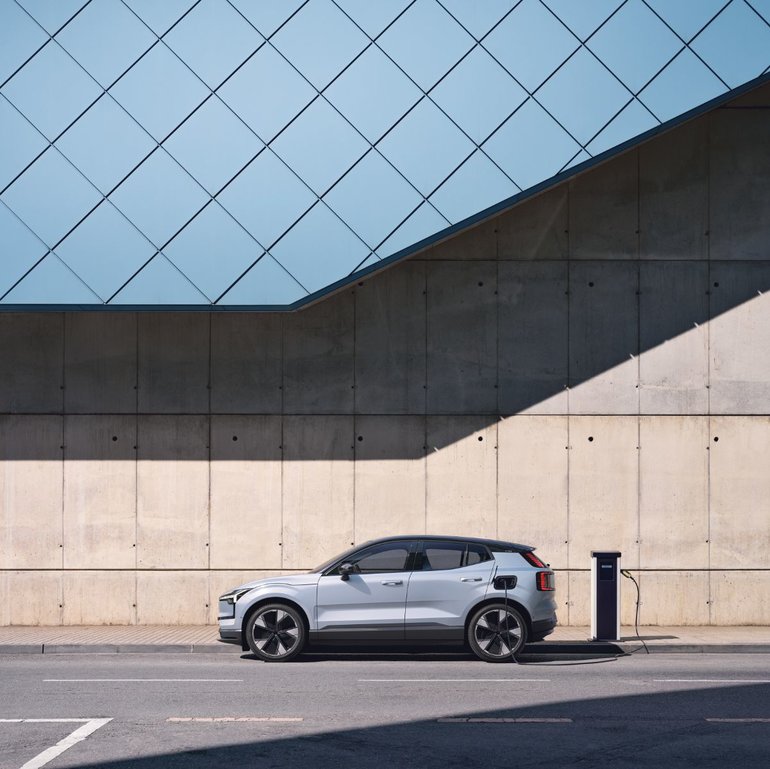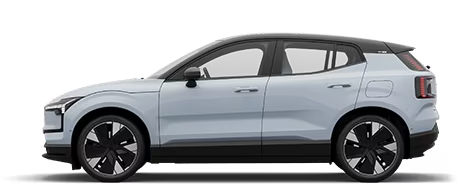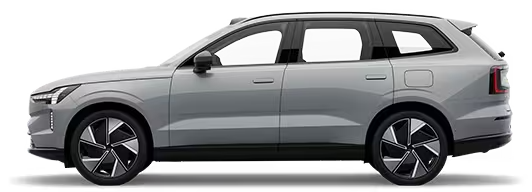Here is How Volvo Plans to Combat Climate Change
December 22 2023,

In a bold move aimed at combating climate change, Volvo Cars has unveiled an ambitious initiative to significantly decrease its carbon dioxide (CO2) emissions. The company wants to reduce its CO2 emissions per car by 75% between 2018 and 2030, an impressive goal that surpasses current industry standards. The ultimate goal for the Swedish brand is that these efforts help it achieve climate neutrality by 2040.
Electrification of the lineup
Key to achieving these objectives is Volvo's accelerated transition to electric vehicles (EVs). Indeed, Volvo has introduced its very first electric vehicles, the XC40 Recharge and the C40 Recharge, over the last few years and it is getting ready to launch the second phase of its electric transition with the EX30 and EX90. In parallel, every gasoline-powered Volvo model has received a mild-hybrid system aimed at reducing emissions and fuel consumption. These first efforts have helped the company make substantial progress already, achieving a remarkable 19% reduction in overall CO2 emissions per car in the initial nine months of 2023 compared to 2018. Starting from 2030, Volvo plans to only sell vehicles powered by electricity alone, therefore eliminating tailpipe emissions from its vehicles entirely.
Increased use of sustainable materials
Volvo is actively exploring sustainable manufacturing solutions, participating in the World Economic Forum's First Movers Coalition to invest in clean technologies, especially in the production of near-zero emission aluminum. Collaborating with Swedish steel producer SSAB, Volvo is at the forefront of pioneering near-zero emission steel in the automotive sector, a material that should make its way to production models in 2026. In addition, Volvo is moving away from leather in its vehicles and replacing it with sustainable alternatives such as wool blends and Nordico. These are not just empty promises either, as the C40 Recharge, introduced for the 2022 model year is the first Volvo model to be completely devoid of leather.
Better sales of EVs
The recent launch of the fully electric EX30 SUV, boasting the lowest carbon footprint ever among Volvo cars, shows the company’s commitment to electrification and sustainability. Despite this new model not being offered in all global markets still, Volvo has seen an increase in the popularity of its electric vehicles, which accounted for 16% of its total sales over the first nine months of 2023. Another milestone in the automaker’s transformation is the phasing out of diesel engines, which are set to roll down the assembly line for the last time in early 2024.
A holistic approach
Volvo believes that it can’t only focus on reducing tailpipe emissions in order to achieve its sustainability goals, which is why its entire supply chain and operational processes are being looked after. These two sectors of the business are to reduce their total emissions by 30% each by 2030, a process that is already well underway. Indeed, Volvo is already using exclusively climate-neutral electricity in its assembly plants and its vehicles are delivered globally using ships that burn biofuels instead of more polluting fossil fuels.
In conclusion, Volvo Cars' impressive commitment to sustainability creates new standards for the rest of the automotive industry by promoting electrification, and advances in sustainable materials, while also highlighting the advantages of adopting a more comprehensive approach to fight climate change.































